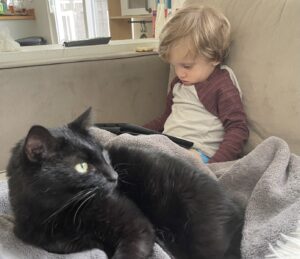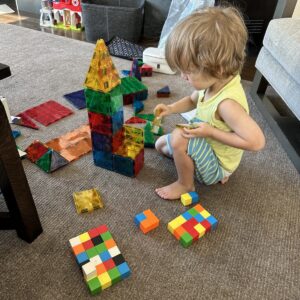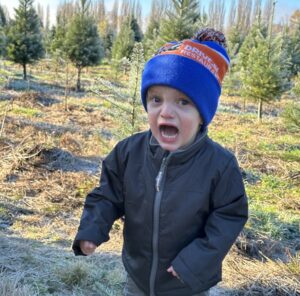My son has Alagille syndrome, but it’s not his defining characteristic
With his unique personality, Finley is so much more than his liver disease
Written by |

When writing this column, I’ve understandably focused on the various medical complexities, situations, and emotions resulting from my son Finley’s Alagille syndrome diagnosis. I feel a responsibility to share our triumphs and our struggles with the rare disease community. By sharing our stories, I hope I can help people feel less alone on this path, which can create isolating experiences.
But in this edition of “Be Rare with Finn,” I want to focus on who Finley is, not just his Alagille syndrome. The condition is a part of his life, but it doesn’t define him. And at 3 years old, his personality is really taking shape.
About Finley
Finley is an animal lover. Whether it’s our regular trips to the local zoo or how he treats our cat, Binx, Finley is all in on animals. We don’t have a dog, but every time we encounter one, Finley is the first to want to give it hugs and pets. He is so loving and gentle when interacting with animals.
Finley is creative. It’s been a joy to watch him develop his fine motor skills. He loves to create intricate buildings of blocks and toys, where he stacks and lines up his creations. He’ll gladly tell you the whole story about his work, even if you can’t follow along. We’re bringing home multiple art creations he made at day care that he’s extremely proud of. As a parent, I love watching his imagination at work.
Finley is stubborn. This trait will probably serve him well in time, but right now, it can drive his parents mad at times. He’ll tell you when you pick him up from day care what he wants for dinner, which is currently noodles with red sauce, and isn’t thrilled when you tell him you have other plans. Despite his smaller size from Alagille, he’ll hold his ground with his peers at day care. While not being mean, Finley has already learned to stick up for himself — something I hope will benefit him in the future. We just have to teach him how to navigate those emotions in a healthy way.
Finley is smart. I know, I know, every parent says that about their kid. As they should. But to allow myself a minute to brag about my son, he’s frequently surprised me with his spatial awareness and understanding, his fine motor skills for his age, the questions he’s starting to ask, and the details he remembers. As an example, last summer we visited my wife’s family, and a year later Finley is still asking to go back so he can see Charlie the cat.
Finley is loud. My goodness, he has a volume button that goes to the max. Don’t let his size fool you — he can be the loudest kid in the room when he wants. If he’s mad, he’ll let you hear it. He may just be playing, but if that imaginative play requires loud noises, believe me, he’s not going to underdo it. We’re still working on our “inside voice,” and he can easily use a quieter tone. But will he? That’s his call at the moment, despite our best efforts.
Finley is kind. This trait will continue to serve him well as he gets older. He loves to greet everyone when he gets home. He parades down the hall at day care waving and saying goodbye to everyone in the different rooms. He loves to give hugs. I’m looking forward to seeing him grow up and how he continues to foster this trait.
Finley has Alagille syndrome, but that doesn’t dictate who he is. He has his own unique personality. Will it be shaped by rare disease? Undoubtedly. But is that his defining characteristic? Absolutely not.
Note: Liver Disease News is strictly a news and information website about the disease. It does not provide medical advice, diagnosis, or treatment. This content is not intended to be a substitute for professional medical advice, diagnosis, or treatment. Always seek the advice of your physician or other qualified health provider with any questions you may have regarding a medical condition. Never disregard professional medical advice or delay in seeking it because of something you have read on this website. The opinions expressed in this column are not those of Liver Disease News or its parent company, Bionews, and are intended to spark discussion about issues pertaining to liver disease.






Leave a comment
Fill in the required fields to post. Your email address will not be published.